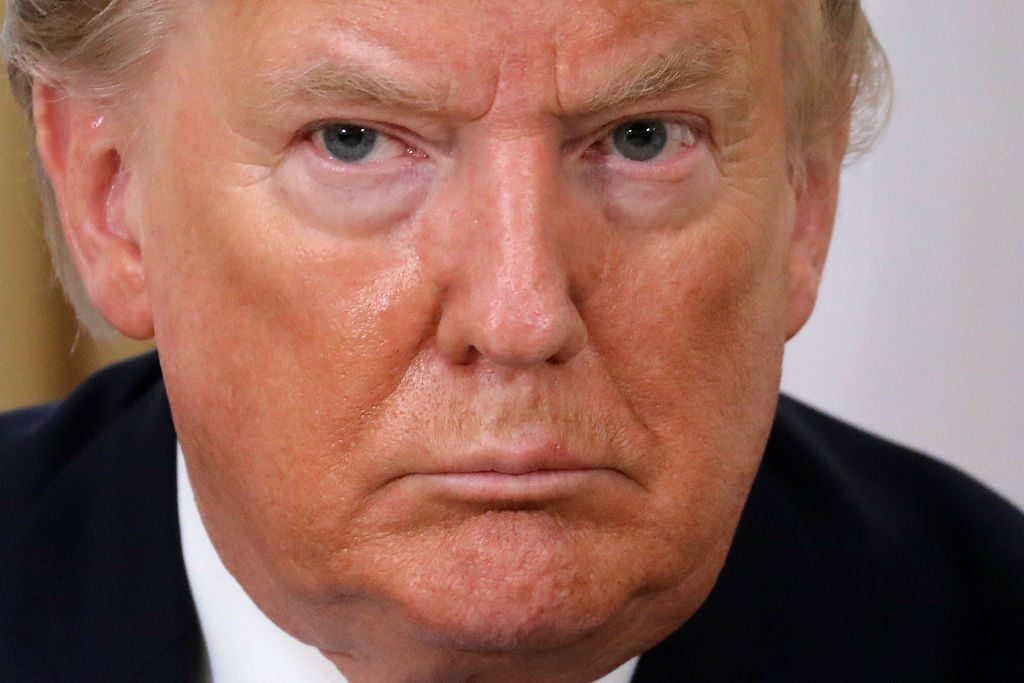A Hawkish Impeachment

Despite fond youthful memories of Bill Clinton/Kenneth Starr/Monica Lewinsky jokes on late-night television, my interest in the current impeachment saga can pretty much be summed up as follows: “Get back to me when they launch an impeachment inquiry over Yemen.” Watching the House vote along party lines to impeach President Donald Trump while barely stifling a yawn over the Afghanistan Papers does little to alter my skepticism about this constitutional crisis built for cable news.
Progressive commentator Michael Tracey offered this apt summary of Washington’s bizarre priorities: “This last week teaches us that temporarily freezing and then unfreezing future military aid to one of our many far-flung client states is [a] huge national emergency but the government systematically lying about every aspect of the longest war in U.S. history is a forgettable non-issue.”
Nobody will be impeached for lying about Afghanistan. There will be no intelligence community whistleblower setting in motion an impeachment inquiry over weapons of mass destruction in Iraq. In fact, the same Nancy Pelosi who ultimately caved to the Resistance shut down antiwar Democrats who wanted such hearings into George W. Bush and Dick Cheney. But here John Bolton, an advocate of preventive presidential war during this very administration, may finally get his wish of being greeted as a liberator.
Even as Representative Adam Schiff led the drive to impeach Trump, the California Democrat voted for a defense bill that lavishes the executive branch with money without restraining presidential war powers. But this seeming inconsistency is practically the point—the entire impeachment inquiry was wrapped in hawkish assumptions and rhetoric as liberal Democrats unthinkingly stumbled into a Cold War 2.0 mindset that few of them this side of Hillary Clinton would have willingly embraced absent frequently overhyped Trump-Russia headlines dating back to the 2016 campaign.
No, Trump isn’t Jesus Christ being handed over by Pontius Pilate. His phone call with Ukrainian President Volodymyr Zelensky wasn’t “perfect” and neither side of this partisan morality tale has exactly covered itself in glory. Rudy Giuliani’s escapades seem particularly likely to end badly. One need not even necessarily defend Trump’s conduct to oppose an impeachment inquiry largely predicated on threat inflation. Arm Ukraine, Stanford law professor Pamela Karlan testified, so they can “fight the Russians there and we don’t have to fight them here.” She could have been starring in a Democratic reboot of Red Dawn decades after the Soviet Union disintegrated.
There’s no question Trump to some extent dangled a White House visit and congressionally authorized aid to Ukraine before Kyiv in pursuit of the talking point that Joe Biden was under investigation. The only matters in dispute are how determined the effort was, whether Trump’s motives were at least partially publicly spirited, the degree of the Bidens’ shadiness, and why the aid was ultimately disbursed (Byron York makes the case that it wasn’t necessarily because of the whistleblower).
House Democrats began with a presumption of corrupt intent on all counts and a definition of foreign election interference elastic enough to include Trump utterances about WikiLeaks and Hillary’s deleted emails but not Ukraine’s (smaller, less systematic and arguably less effective than Russia’s) 2016 influence campaign. And while not all investigations are created equal—if Hunter Biden’s business dealings are to be probed, it should not be as a favor to any president—the impeachment inquiry itself is an investigation of a political rival, who was also investigated during his previous campaign.
If shortcuts were taken in the beginning of the Trump-Russia investigation, the origins of Trump-Ukraine resemble a template for undermining any seriously antiwar or civil libertarian president. Trump is not that president himself, of course—his acquiescence to the Beltway blob on lethal military aid is precisely what increased his leverage over Ukraine—but some plausible Democratic candidates and even the occasional Republican could be. Trump’s mild rhetorical dissents on foreign policy are clearly a factor in why he has reason to be suspicious of his own subordinates (it’s also why it is disingenuous to suggest that replacing Trump with Mike Pence is no different than replacing Bill Clinton with ideologically identical Al Gore or that people who have worked for Bush, Cheney or John McCain would have no reason to oppose Trump).
Many Democrats sincerely believed they were impeaching Trump for the least of his crimes, like Al Capone and tax evasion, and that Robert Mueller let him escape last time. They are also making a case against Trump’s ability to separate personal and national interests in a way that speaks to his fitness for the office, with Ukraine merely being their specific example. But in doing so, they are also ratifying a bipartisan foreign policy consensus that has failed the American people, and that’s bigger than any one president.
W. James Antle III is the editor of The American Conservative.
Comments